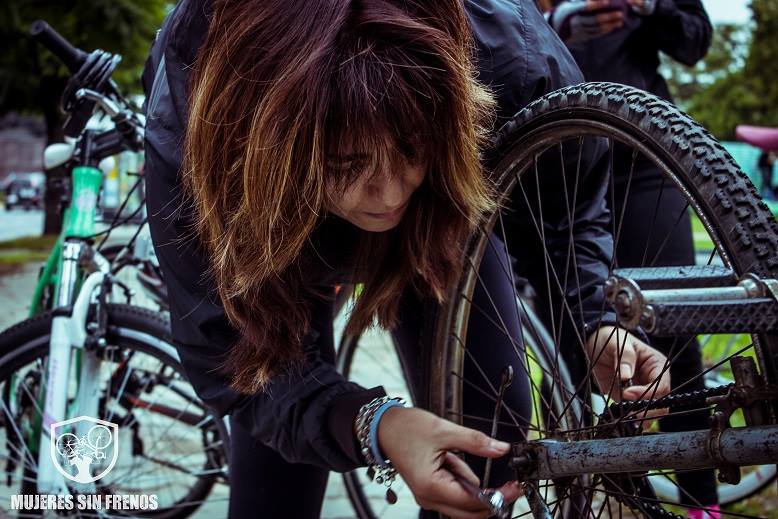Hi, I am Marcela Espíndola: Feminist militant, activist and urban cyclist.
I have a degree in Social Communication, a diploma in Parliamentary Counseling as well as a diploma in Gender and Communication. In recent years I have worked on sustainable mobility, gender and road equity. I was co-founder in 2007 of Ciclofamilia, an organisation in Buenos Aires that worked on family mobility and gender in urban cycling, where the first Bike school for adults in Argentina was created.
I am a Tandem Bike Pilot Guide, a practice that I was able to develop in different social inclusion activities for people with visual disabilities. I was a member of Mujeres sin Frenos, a self-convened group of women in Buenos Aires that generated actions for the greater enjoyment of public space, as well as Argentina en Bici, a national and participatory group in favour of sustainable mobility.
Currently, I am part of the Urban Cyclists Association, an organisation that for 20 years has been promoting the use of bicycles and the right of cyclists to circulate and in favour of public transport, inter-modality and the traffic pacification.
How would you describe your mission?
I believe that the greatest challenge after confinement due to the COVID19 pandemic is to rethink cities as places to live, with more spaces for coexistence and public enjoyment, and where the bicycle is the best tool for social transformation, the most sustainable and the one that best adapts to the resilience of cities.
My intention is to promote this view of the bicycle and work collectively to improve public policies on traffic in the city, infrastructure, regulations, etc., for those who are the most vulnerable.
What are the obstacles and challenges you are facing in your city?
For 10 years, our city has been developing bicycle promotion policies aimed especially at the mobility demands of adults whose main itinerary are trips to central areas. Although there are more cyclists on the streets than a decade ago, the potential that the bicycle has when it comes to resolving the right to mobility of other groups and demographics other than young and economically active adults is not present in the decision making of cycling policy, nor on the demands of groups in favour of cycling.
I think it is a great opportunity to think about local policies that improve accessibility for people with disabilities, women, the elderly, and children, who see spaces in large cities as unsafe.
What are the next steps now that you are the Bicycle Mayor?
I am, first of all, a cyclist and a feminist activist. Today I owe this place to those social groups. If these worlds “intersect” (the feminist agenda and the cycling agenda) we could achieve many of the conquests for which we have been fighting separately: a safe city for all, liveable, enjoyable, and possible. Another sign of the times is that in my country there are two other mayors of the bike, who I am lucky to know and who are doing an enormous job in each of their cities. They are my reference and they will surely teach me a lot.
What lesson can your city teach others?
Buenos Aires is a city that has provided cycling infrastructure in the last 10 years and that has made it possible for more people to move around the city by bike, but much remains to be done in terms of road safety, education for those who make up the traffic, promoting inter-modality, and generating more inclusive measures.
Connect
Join us

